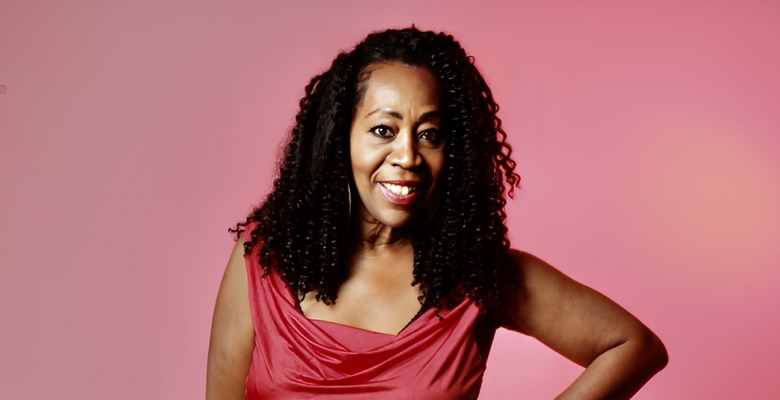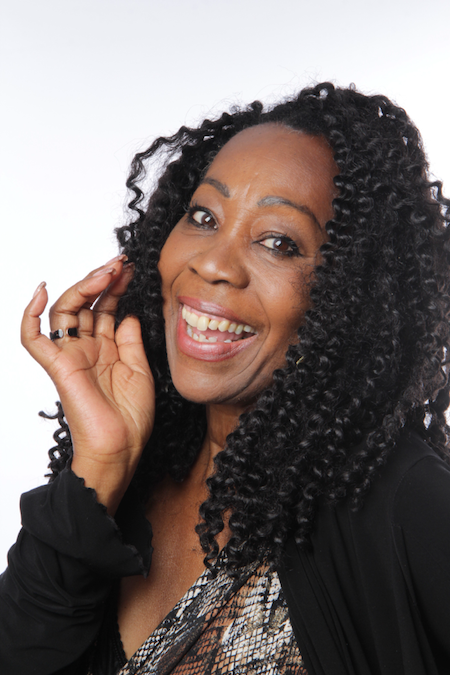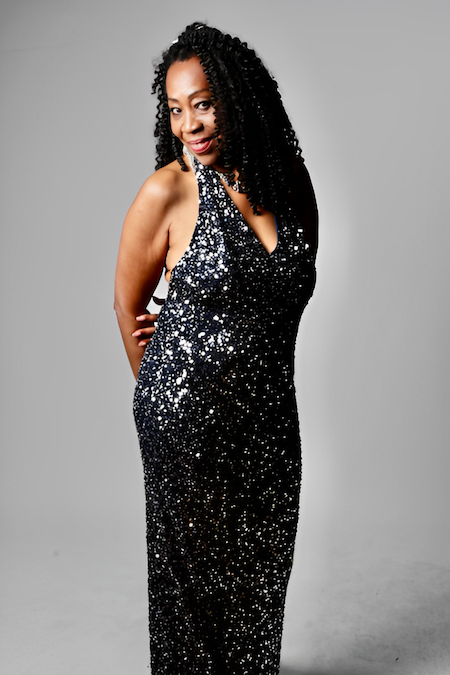
I meet Sheila Bonnick in a cosy pizzeria just off Baker Street. She arrives with a radiant smile, looking effortlessly glamorous and far younger than her supposed age — the one you won’t even find listed on her Wikipedia page. Instantly warm and full of energy, she speaks with the ease of someone who’s lived many lives and has a thousand stories to tell.
Best known as one of the original members and founding figures behind the iconic disco group Boney M., Sheila Bonnick has spent decades performing around the world, reinventing herself, and navigating the highs and lows of the music industry. Over the next hour, we talk about everything from her first journey from Jamaica to the UK, to copyright battles, the hypnotic power of Boney M.'s music, and her ongoing, somewhat spiritual connection to Russia.
How did your family get to London?
In the Caribbean, the practice was that the father comes first. So he would come to set down roots, make money, find somewhere for the family to live. My dad stayed with my mother's brother, actually. Then the mother comes with the youngest child. That's when I came with my mother on a Portuguese ship. We stayed with my mother's oldest brother in Manchester. Soon afterwards, we found something in Shepherd's Bush that became our first family house.
I went to a lovely school there and absolutely loved it. Two years later came the second youngest. It was all down to affordability because you couldn't afford to bring everyone at once. The two eldest came last, travelling together two years after that. By then, we were all together in Shepherd's Bush. Later we moved to Willesden. We always stayed around West, North-West London. Now I live in Wembley.
What are your memories from back then?
I remember London being freezing bloody cold, with deep snow. It was much colder then, in the late '50s. I also remember my father busking in Manchester. Not for money—he didn't do it for that. He was a very good musician and singer, and he used to draw crowds. People gave him money, even though he didn't want it. That actually embarrassed the family.
My father wasn't the best father, but he was very entertaining and charismatic. He had that deep male voice, like Bobby Farrell. Later, I realised he even looked like Bobby. Isn't that just strange? I think a lot of things could be déjà vu if you dig deeper. The Universe is talking to us all the time.
Do you think your career with Boney M. was meant to be?
Nothing is coincidental. Whether you want it or not, you're going to get whatever the Universe has planned. It wasn't a nice experience in the beginning. I'm fortunate I made a comeback—to the living, really. People think I get royalties, but I don’t. So it’s good to set the record straight.
I don't receive royalties because I didn't sing all the Boney M. hits. I left just before the first one, "Baby Do You Wanna Bump", and before "Daddy Cool". I didn’t record, but I laid the platform. You could say I’m a founding member. But I didn’t like what was really going on there. I had serious personal clashes, and in certain situations, I wasn’t too keen on getting involved.

Isn’t that always the case in show business?
We’ve all heard the stories—look at P. Diddy. It’s just not for me. I don’t even know why I’m in it, apart from the fact that I can do it. I bring people joy, and sure, I like to earn—who doesn’t? But I’m not money-mad. I believe in fate. It was my fate to be there, and also my fate to leave when things got dark.
I’m not saying anyone in the band was involved in something scary —it’s not my place to say. But those things do happen in the business. I’m not pretending to be Snow White or Mother Teresa, but I do have strong principles, and I stick to them.
But you said you were one of the founders. What was the cornerstone you laid?
I laid the foundations because I started the group. Me and Maizie Williams, really. We built it up, did lots of promotion and TV shows. Sadly, there's no footage. So people might think, "Oh, she's fake, she's a liar." But I know what I went through. And I’m not.
Tell me more about Jamaican spirit and Boney M. I heard some songs were based on Jamaican folklore.
Yes, that’s true. Good homework. "Brown Girl in the Ring" is a traditional Jamaican children’s song. All the Boney M. songs have stories. None of them were written originally—they were all copied but arranged with a twist. Frank Farian is a genius, you know. But nothing was original.
"Rivers of Babylon" was adapted by the Jamaican reggae group The Melodians—it’s a Rastafarian spiritual. "Ma Baker" is a Tunisian folk tune, adapted from a Sufi devotional song called "Sidi Mansour", sung in praise of a Muslim saint.
My parents—and even my generation—were hooked on Boney M. The songs are like everlasting earworms. Why are they so powerful?
I can’t say I love all of them. I’ve got four personal favourites, but not the rest. "Brown Girl" for me is just a nursery rhyme. I’m not that impressed. But they’re still powerful—even the nursery rhymes—because they make people happy. Anything that lifts your spirit and tells you not to worry is a winner. You just can’t be miserable listening to it.
They also came at the right time—during a dark world crisis.
And there’s something in the frequency Frank created. It’s all Frank Farian, I have to say. He wasn’t an original writer, but he was a genius interpreter. He had the best arrangers and musicians. They devised a very hooky sound. Maybe even hypnotic. That’s what music does. These hits had a certain chord, a certain frequency, a pace that pulls you in.
Like the tunes the Rat Catcher of Hamelin played?
That’s a perfect example.
So that's why Soviet officials let the Boney M concert air on TV in 1978?
Yes, that has a lot to do with it. I think they loved "Rasputin". And from there, they started listening to everything.
What do you think about that song? It’s basically Rasputin’s Wikipedia page in lyrics.
That’s how clever Frank was. Nobody else told a story like that in a song.
Why Rasputin?
You know he was psychic—spiritually.
So, the spirit of Rasputin just knocked on Frank’s door?
It could be! Also, Frank had a plan—to make a hit in every country. Boney M. songs cover loads of cultures: Jamaica, Spain (El Lute), Italy (Kalimba de Luna), and Ireland (Belfast). So why not Russia? He did his research, found the facts, and turned them into a story.
But let me tell you—it’s not easy to learn. Boney M. songs sound simple, but they’re really not. Most people I’ve hired, even some of the originals, struggle to learn them. The lyrics are wordy, the arrangements inconsistent. It’s musically tricky. You wouldn’t think it—but it is. ABBA songs are tough too.
You lead your own tribute group, "Sounds of Boney M." Do you still perform "Rasputin"?
Yes, all the time. The structure is all over the place—you have to concentrate. If the male messes up, it throws off the women. If he misses a line, it disrupts everything.
You need to study these songs properly. A lot of performers don’t. They love to sing, but they don’t take it seriously. I’ve had problems with team members who only care about the crowds, the excitement, and the money.
To be honest, they know there’s a kind of spell cast on people. You said it—it’s magical. Just say the name, and people go mad. Once the music starts, it takes people over.
If you're not experienced, it can be intimidating—or you can get ruthless. I’ve had team members do shady things—fake money, chasing fame. They’re hypnotised. It’s intense.
So yes, I’ve had problems. It’s not as easy a life as people think. Right now, I’m on a break, and honestly, I’m grateful. No shows until June. Summer is when it picks up again.
Who was playing in London in March?
Maizie Williams.
So each member has their own version of Boney M.?
It’s tricky. They still call themselves Boney M., and I do too, but I usually say it’s more like "sharing the experience." I’ve been sued as well, and that’s fine. People should know. I’m not hiding anything.
Trademarks are incredibly complicated—especially with this band. Technically, the original Boney M. hasn’t existed since 1984. But each original member—me included—formed their own version and brought in new singers.
It’s mostly agents who push the name. They market everyone as Boney M. Young people often don’t know the difference. Maybe 40% of the audience at my shows is under 30—thanks to the Rasputin remix going viral. Their parents might know. But if you only know us from YouTube, you won’t recognise who’s who.
There’s still a stereotype that all Black performers look the same. That doesn’t help.
So yes, there’s a lot of mischief around the name. It’s easy to exploit. There has to be a bit of mystery. As original members, we’re allowed to perform. But we have to frame it carefully.
If the audience knows what they’re coming to see, it’s fine. People your age often just want the music and at least one familiar face. They’re not researching on Wikipedia. Some even think Bobby’s still alive! They turn up and say, "Where’s Bobby?" and leave disappointed.
But many still have a great time. They come for the music and leave happy.
Have you been to Russia lately?
Yes, I went to Krasnodar in November. By the way, I don’t need a visa—thanks to my Jamaican passport. We performed at a big arena. There were other acts, but we were the only ones from this part of the world. People are afraid of the political context. I’m not. Though I did have personal bodyguards there.

What Jamaican food would you recommend to our Russian-speaking readers in the UK?
I get the impression that Russians love anything Jamaican or African. If they’re thinking of visiting Jamaica, they’ll love it. I’m a very proud Jamaican. My Icelandic husband thinks it’s the prettiest island in the Caribbean. But it’s also the one with the most attitude. Jamaicans can be quite rude—in a way similar to Russians. What you see is what you get. Not always good, not always diplomatic, especially the older ones. But somehow, it’s still charming.
I think the arrogance comes from knowing we have a special island with a lot of gifts. A lot of famous musicians come from there.
As for food, Jamaica has given the world so many iconic dishes. One of the best is curried goat—especially if you eat meat. It’s like lamb, but tougher, so it takes longer to cook. But when it’s done right, it’s delicious—the meat just falls off the bone.
We cook it with heat. If you’re not into spice, it might be a challenge! I’m not sure if Russians have the stomach for it, to be honest. But you can tone it down. We traditionally use the hottest peppers, but you don’t have to.
Then there’s rice and peas—that’s a classic Caribbean side. If you walk into any Jamaican restaurant and ask for curried goat with rice and peas, you’ll fit right in.
And of course, ackee and saltfish. That’s our national dish. Ackee is a fruit, and saltfish is like bacalao—the salted cod you find in Spanish and Portuguese cuisines. It’s a unique combination, and people are always surprised by how good it is.
You've done so much over the years—performing, writing, music. What are you working on now?
I still want to bring joy to others—that’s always been part of my journey—but now I’m also focusing on things that bring joy to me.
One of those is my album Justify—it’s a reggae-pop album. Not strictly Jamaican reggae, but more commercial in style. It features known and unknown artists, including the brilliant Mats Björklund on guitar. He played on many classics and sadly passed away about a year ago. So the album means a lot to me. I’m really proud of it.
I’ve also written a novel called Mixed Emotions, inspired by true events. It follows two women—Satine and Ava—chasing fame in the 1970s music scene, from London chorus lines to Hanover nightclubs. They form a girl group called Mixed Emotions. But as they rise toward stardom, secrets emerge, and they must confront the price of their dreams. It’s about identity, friendship, and the music industry. I co-wrote it with a close friend.
I’ve also written Women Are Like Cats and Men Are Like Dogs... Or Are They?—a more humorous look at relationships and gender roles.
All of them are available on Amazon and Kindle—just search the titles, and you’ll find them!






